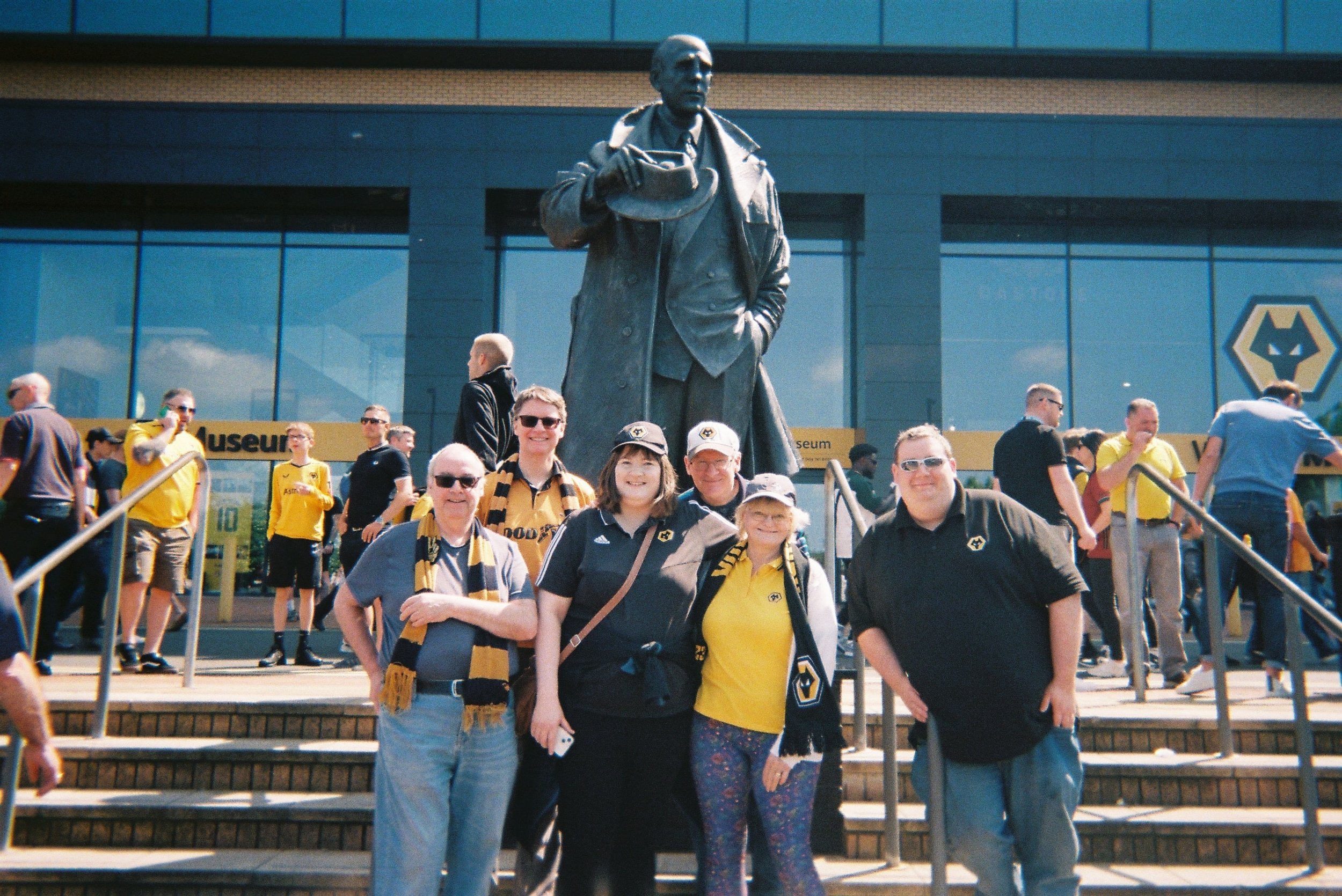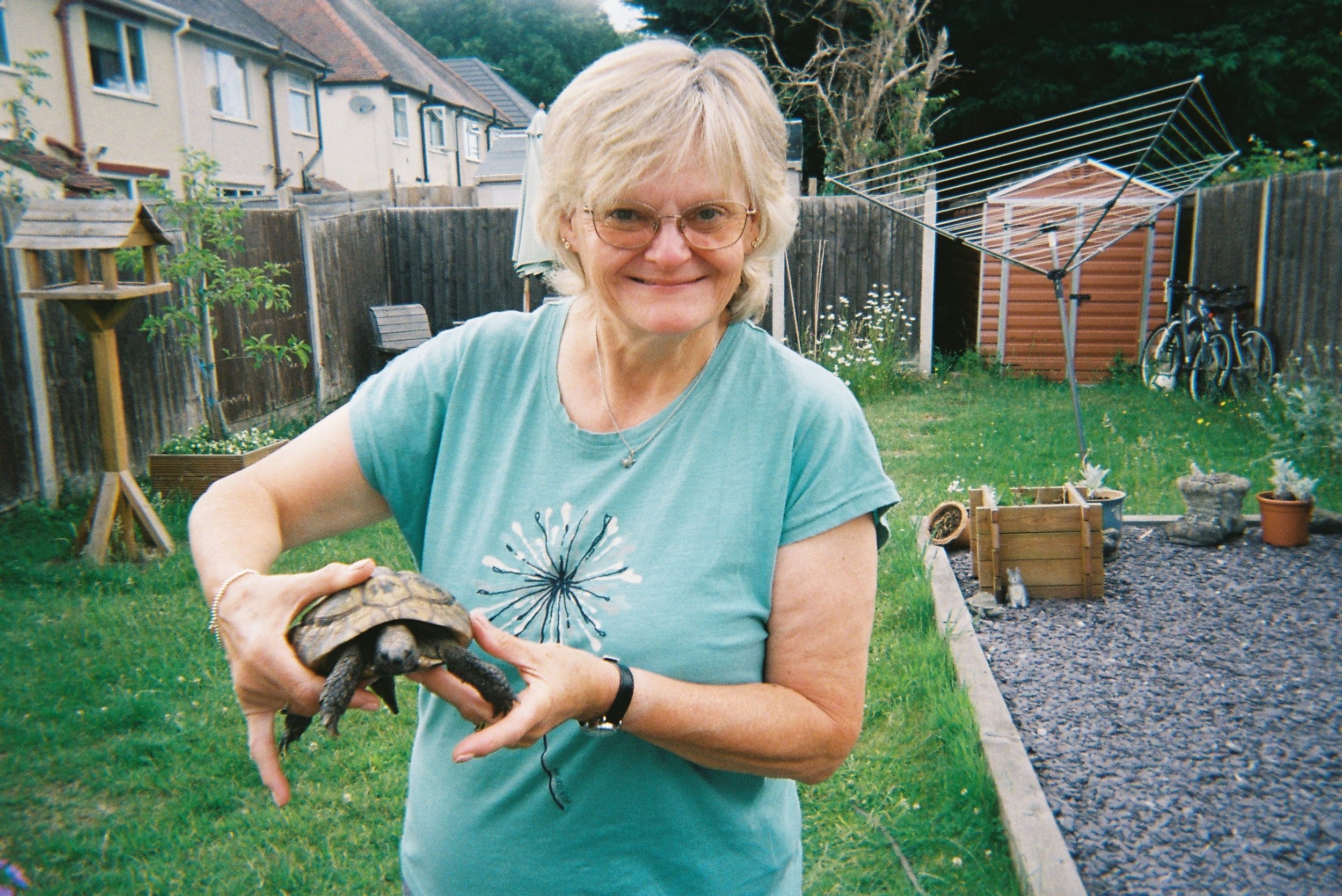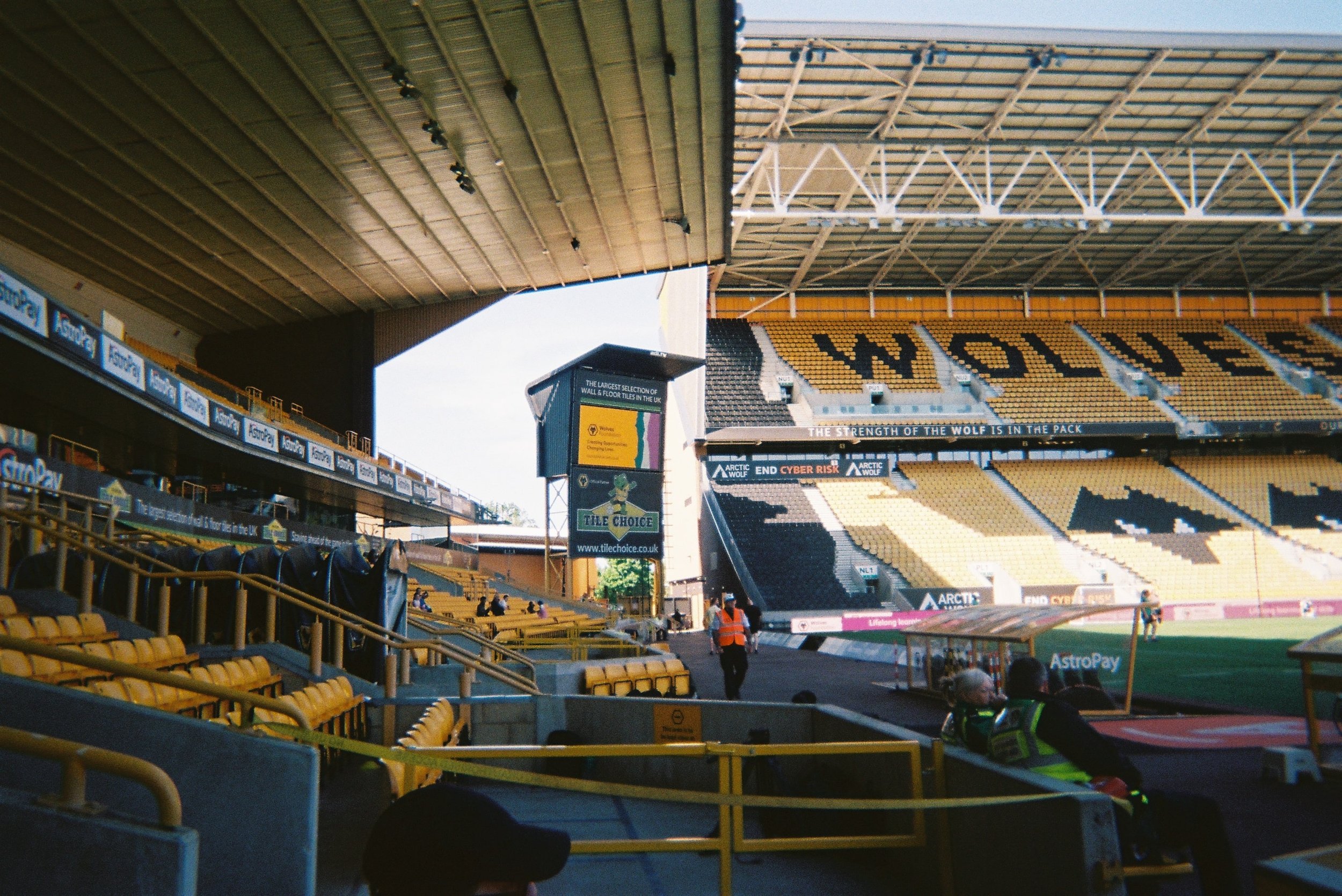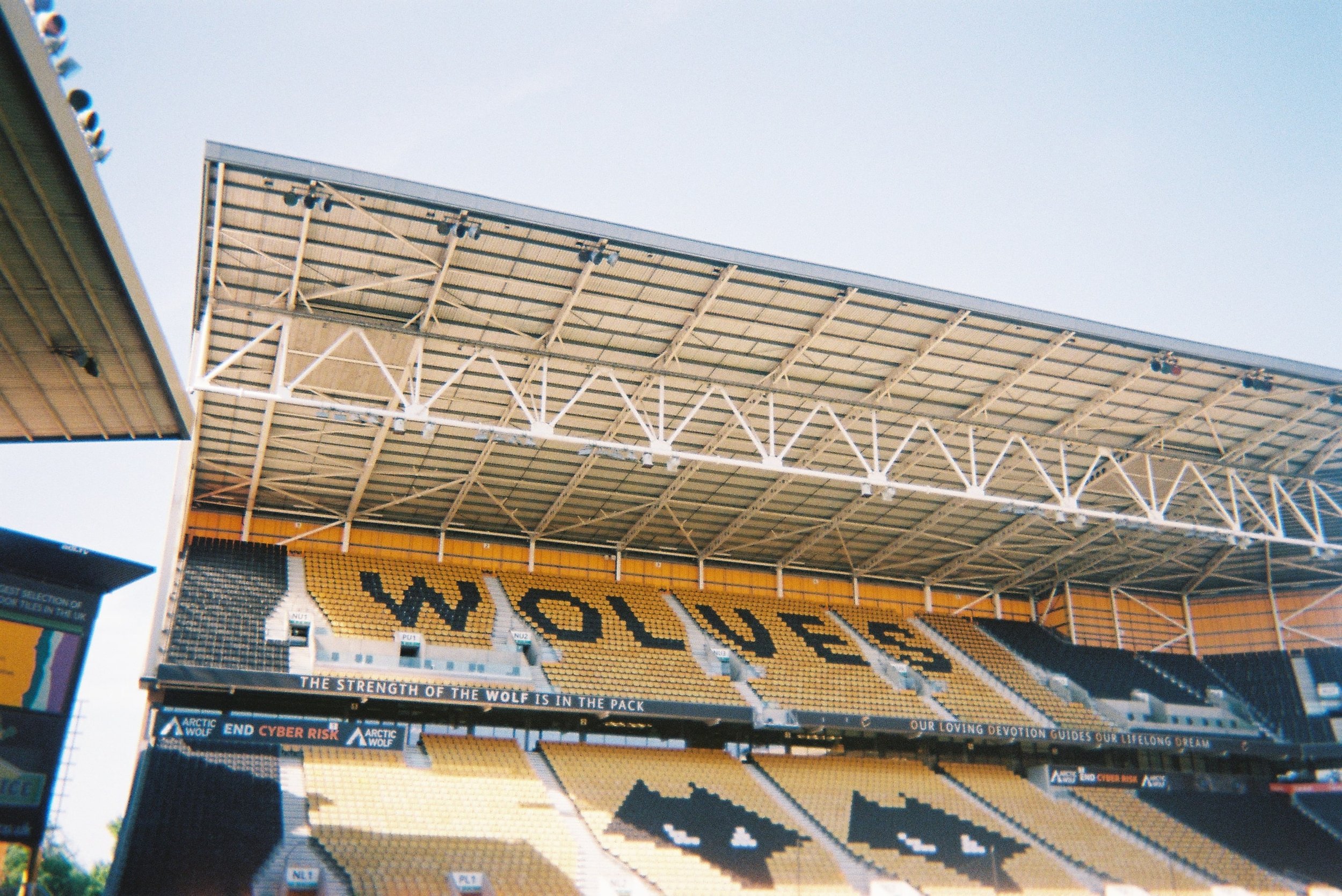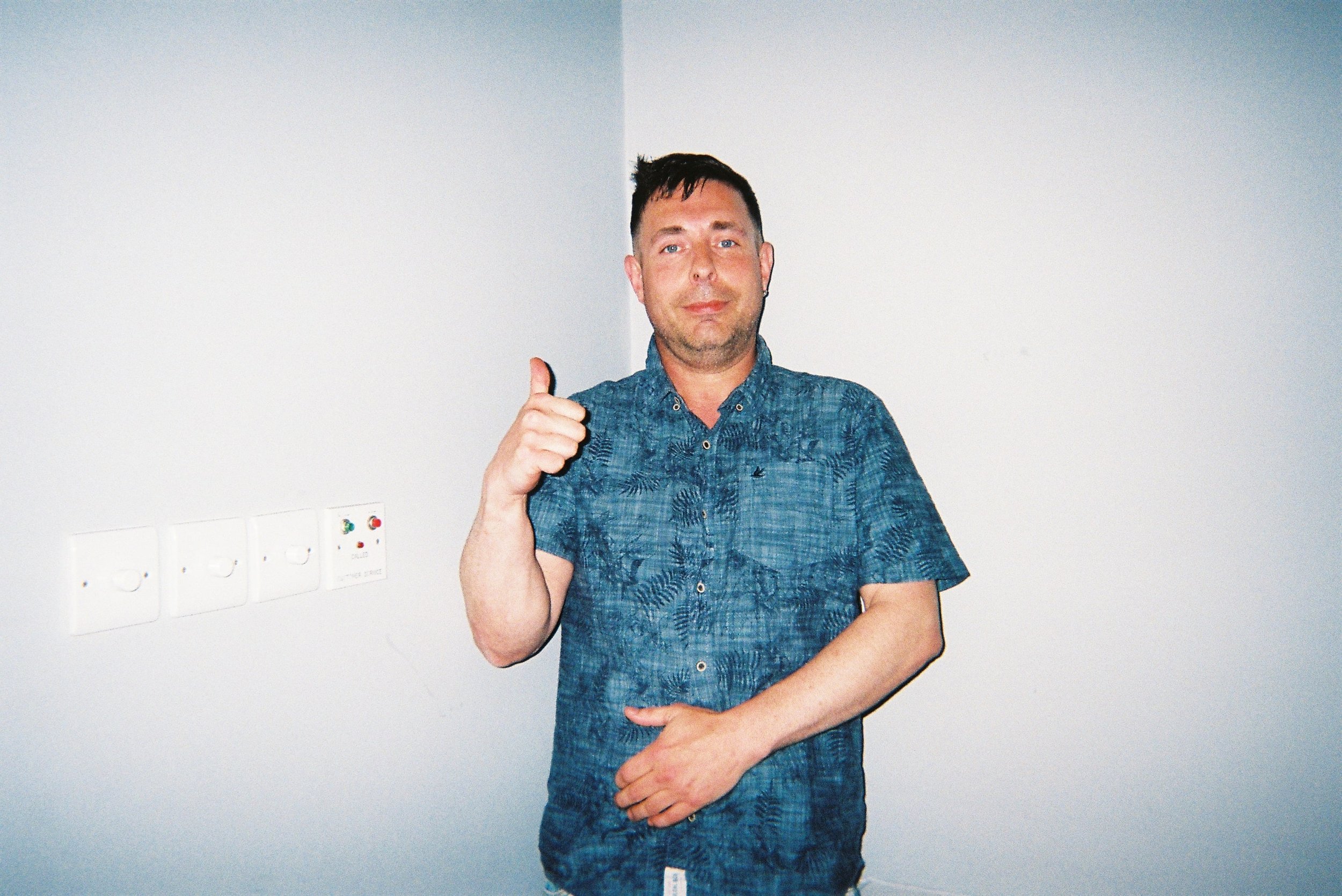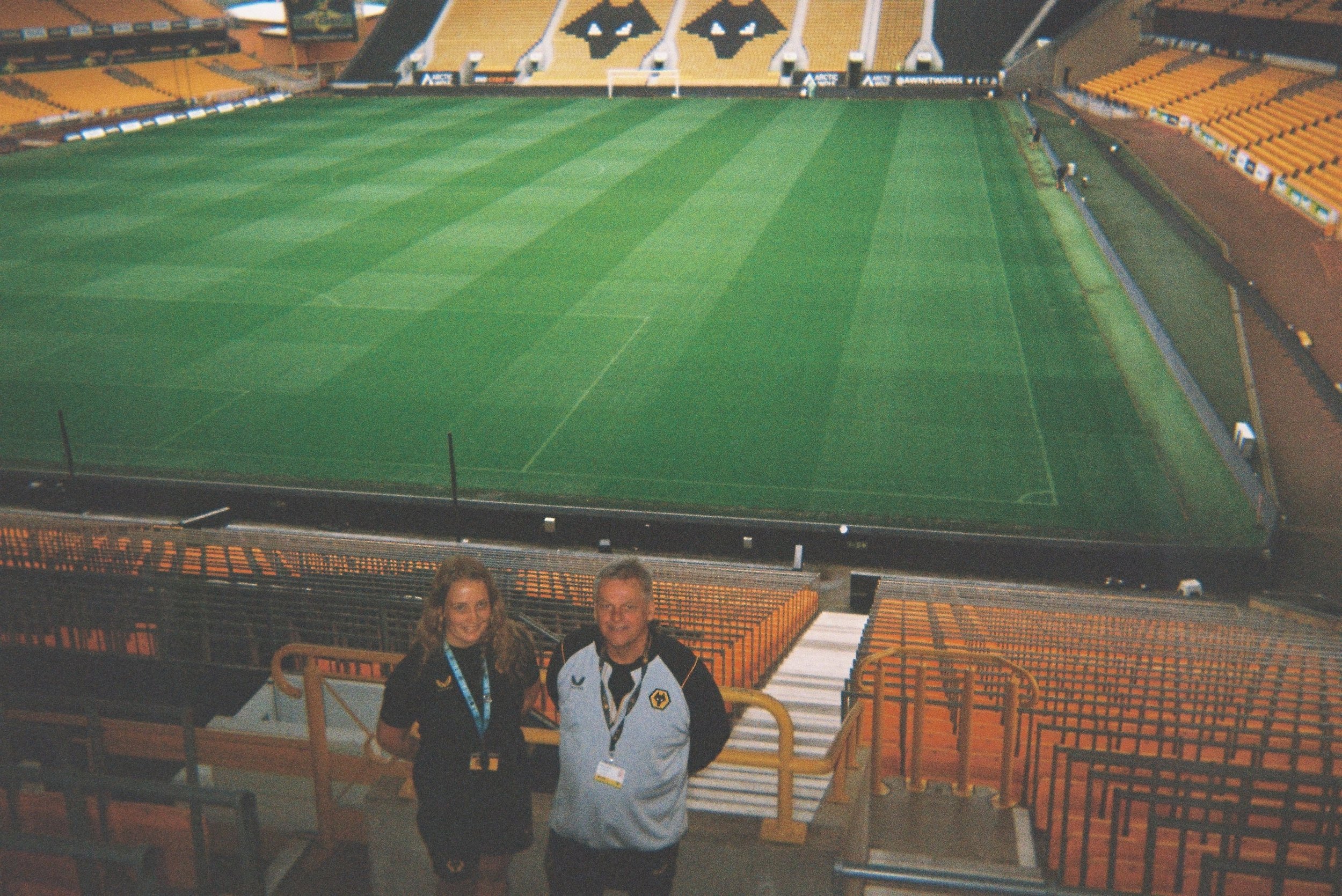Speaking Up About Mental Health
John, England
This article contains references to suicide, which some readers may find distressing.
Goal Click and the Premier League Charitable Fund (PLCF) collaborated on a campaign to showcase the powerful impact of the Premier League and Professional Footballers’ Association (PL PFA) Community Fund.
Six individuals from Aston Villa Foundation, Palace for Life Foundation and Wolves Foundation have documented the activities made possible by the PL PFA Community Fund and the impact the programme has made on their personal lives. John participates in the Wolves Foundation Head 4 Health programme, which encourages open conversations about mental health.
Can you introduce yourself and tell us about your football journey?
My name is John and I am 67 years old. I was born in Wolverhampton, where I have lived my whole life. I have been involved with Head 4 Health with Wolves Foundation for more than three years. My dad was a Wolves supporter and I have been a Wolves season ticket holder for some decades.
My earliest memories of football are from Saturday, 7 May 1960 – I was four and a half years old. I was sitting in front of our small black and white television together with my brother and our Mom saying to us “see if you can spot Daddy!” at the FA Cup Final between Blackburn Rovers and the team that was to become ‘my team’ – Wolves. We won 3-0, and later that evening I remember being at the train station with my mom and brother to meet my dad. In January 1965 dad took my brother and I to Molineux for the first time, against Blackburn. We won 4-2, I was hooked on the game and in particular on Wolves. Within two years, I was attending matches on a regular basis and now, almost sixty years on from my first game I still go to every home match.
How did you get involved with Head 4 Health and Wolverhampton? Can you tell us about what you do with Head 4 Health?
I was diagnosed with depression some years ago while I was still at work. Things were not very good and in March 2018 I drove away from Wolverhampton, passed where I worked and on to the coast, where I intended to end it all. Fortunately the rational side of my brain eventually intervened and life settled down again.
I retired from work later that year and found things to do until in November 2019, I once again felt things were so hopeless that I drove away with the same intentions as 18 months earlier. This time the police intervened, contacted by members of my family and community. On this occasion I decided I needed some help and went along to a session run by a local group. Listening to somebody talking to a group of 10-12 of us and then being told to look at leaflets did nothing for me.
A chance encounter some days later saw me being referred to Wolves Head 4 Health. In January 2020 I drove to Molineux for my first meeting, having spent the previous few days coming up with every excuse and reason I could as to why I should not go. It took ages for me to walk through the door – where I found another nine blokes just like me. A warm welcome. An invitation to share as much or little about ourselves.
The staff were easy to talk with, encouraged us, and advised us it was a safe space. No recriminations, no “how could you think that or say that”. It immediately felt comforting. I left that evening feeling a little more optimistic - I had managed to talk a bit about my challenges and people listened without judgement.
I returned the following week. We enjoyed the sessions, which were a mixture of talking, physical activities, and getting to know and understand each other – until Covid-19 hit us squarely in the face. No meetings, in fact no anything. A low point just when things were starting to get a little better. Everything ground to a halt – school was closed, church was closed, football stopped. At that time, no longer employed, I had nothing. And then, Wolves Head 4 Health introduced online meetings via Zoom. Connections were made once more and we had something other than the daily walk or weekly shop to look forward to.
After a while, Walk and Talk sessions were introduced – socially distanced of course! What a wonderful yet simple innovation the Wolves Head 4 Health team had introduced – we got out of the house, we could exercise and talk. It was so good! We even got to feature in our own music video with footage of us walking around the park, talking and laughing. We sang ‘With A Little Help From My Friends’. This is one of my happiest memories.
Participating in this project was satisfying, rewarding, and enjoyable. Once Covid-19 restrictions were lifted, I was once more able to attend sessions at Molineux – Extra Time meetings, drop-in sessions for anybody who had been on a cohort. I met new people and, over the past couple of years, have come to know these folks well.
What happens at the Extra Time meetings? Why are they important?
The Extra Time meetings have become a lifeline for me. They are held twice a week and anybody can go. It is an opportunity for men to talk in a safe environment about how we are. An important aspect of these meetings is that everybody has a chance to talk. The rule is that we respect each other and respect what people have to say and we listen. I find that sometimes I have little to say, but on other occasions where the past week has not gone quite as well as I hoped, I have more to say. Discussions take place and people can offer their support. I have found that although I am not the most talkative of the group, there are times when I can offer help to others. That is so important to me, being able to help others, in whatever way I am able.
These sessions are also used to bring in outside agencies to give talks and offer advice. From a talk by NHS nurses on prostate cancer, to drug and alcohol awareness, to the issues of gambling addictions, and a yoga session aimed at wellbeing. From my perspective the added bonus is that these meetings take place overlooking the Molineux pitch!
We are all different. We come from different backgrounds with different experiences and facing different struggles. But, in that room on a Wednesday evening, we come together and there is no judgement. No struggle is too small, and nothing is unimportant. We trust each other. Whatever is discussed and talked about in that room stays in that room, in our hearts, and in our minds.
What impact has Head 4 Health had on you?
Head 4 Health has given me a place where I can talk; it has given me the opportunity to help others even if in a small way; and it has given me another community, another group to which I belong. I enjoy being able to meet in a safe place, the fact it is in a room overlooking the Molineux pitch is a bonus! I enjoy meeting with others all of whom have mental health issues like me where we can support each other.
We are being continuously enabled by Wolves Head 4 Health to talk, something not always easy for men to do, especially with other men. But it is absolutely vital in helping us deal with mental health issues. I was invited to be filmed talking about my mental health and how the Head 4 Health team had helped me – this took place on the side of the pitch at the Molineux and is on the Wolves Foundation website.
There were other rewards too – a few weeks ago we were invited to play football on the Molineux pitch. Quite an experience even if, at my age, I found it difficult to keep up with the younger, fitter blokes! But to even be in a position to play on the pitch, where I have watched so many great players over the decades, is down to Wolves Head 4 Health. Without them I have sincere doubts whether I would be here. Their impact on my life has been huge.
What did you try to show with the photos? Was there any wider meaning with the photos?
I wanted to show the people important to me and the links to my football club. I belong to what I call my ‘communities’ - family, football, church, school, and Head 4 Health. Each has had important impacts on my life and enabled me to deal with my mental health issues. Without my football club, Wolverhampton Wanderers, Wolves Head 4 Health would not exist; without that I doubt I would be here today.
There are photos of my family outside Molineux and in the Stan Cullis Stand where we sit (also known as the North Bank), a far cry from the wooden terrace I stood on for many seasons. My wife Anne has always been there even in the darkest of times and my brothers are always there for me.
My grandson Marcus has lived with us since he was 4 months old. I drove him everywhere around the north west of England, supporting him as he played for Shrewsbury Town’s football academy. Sadly his career was cut short through a serious knee injury. He allowed me insights into “the other world” of Premier League football as he played at Manchester United’s Carrington training centre and Manchester City’s Etihad complex.
I attend church every week and within our congregation there are a number of Wolves supporters including my wife who is the vicar, and two of my brothers. During the season there are often long discussions taking place both before and after the service as we dissect what happened at the previous game.
My other community is my local primary school, Rakegate Primary School, where I am Chair of Governors. It is extremely important to me and to my mental health. Jamie and Marie are two members of staff at Rakegate who have made me so welcome in their classroom at school. It has enabled me to give something back, to help the children. Being able to do things for people is an important part of my life and so helps my mental health.
There are some photos of statues which stand on the central reservation of one of the main roads into Wolverhampton and towards Molineux. Every time I pass them they are a reminder of what my club stands for – one pack, all together. There are also photos of a Walk and Talk session around the park and the Extra Time meetings at Molineux.
I have also included five photographs of men who are regular participants in the Head4Health Extra Time meetings overlooking the Molineux pitch. Their names are Jason, Dervan, Ravi, Graham, and Simon. They are at the meeting most weeks, sharing how they feel along with the good, and often, the not so good parts of the previous week.
These individuals are important to me because they make me think about where I fit into my different communities and how each one plays a part in my life. They remind me of how many people would have been affected had I gone through with taking my own life.
How has Head 4 Health improved your mental wellbeing?
Head4Health has been the mainstay of improving my mental health. Not only have I been able to enjoy the safe environment where no one judges and there are no recriminations, but I am also fortunate to access a 1-to-1 counselling course which enables me to get certain things clear in my head and understand partly why I felt as I did.
The continuing contact with the team and those who attend are crucial to me. I know if I need to speak with anybody then somebody will be available. Sometimes speaking with family members does not work. I need someone who, while knowing me quite well, is a little more removed.
What ambitions do you now have for the future?
Compared with three and a half years ago, I am in a much better place. It is not perfect and I still have wobbles when certain outside influences affect me. But I now have tools to manage these wobbles, how to deal with them. Going forward, I see continued involvement with Wolves Head 4 Health. If I can help others even in small ways then I can feel useful and there is a purpose to my life. If I can feel that, then my mental equilibrium can be maintained.
Why is football important to you and to your community?
We are a one club city. There are no divisions. The town and now city has shaped my life, it is a city full of diversity and teaches tolerance and acceptance of others. We have a proud history as one of the 12 founders of the Football League back in 1888. When Wolves have success it gives everybody in the city a lift – you only have to see the tens of thousands who turned out to cheer the team when they won promotion to the Premier League.
Samaritans can be contacted on freephone 116 123 or on email jo@samaritans.org

